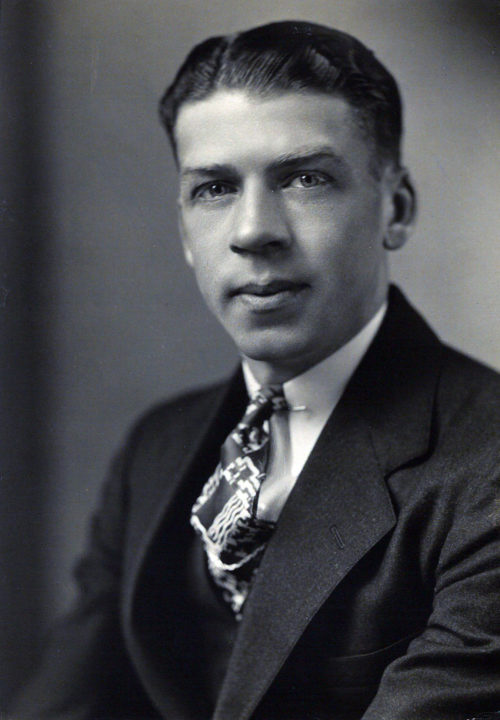
Recently, a writing workshop I attended, prompted me to think about my grandmother, and to wonder about her legacy. I don’t mean money or possessions. Even though my paternal grandmother, Emily, died well before I was born, I have begun to recognize how her influence on my life has been long-lasting.
Emily Ralston was an immigrant. She and my grandfather, her husband, Thomas Knox, were both born in Northern Ireland. However, they never met until they emigrated here to the United States. When we are in school, we learn the history of various immigrants who came to this country. In the news, every day, we hear about the political attitudes toward immigrants and immigration. Immigration can sound like a vague and negative label in our currently political climate. But when we consider a particular story about an immigrant, it makes the concept more real. Immigrants become people. Immigrants become ancestors, like my grandmother Emily, whose too short life inspires great curiosity in me.
In my father’s stories, my grandmother is not an abstraction. She is an example of someone who emigrated and made a home for her family. I am an American, and a second generation of this woman.
Emily died when my father was in his early twenties. At first, I almost felt a blank––as if I knew nothing about her. I found a picture of Emily, and asked myself some questions. My reflections began to surface. I began to recall the stories and memories my father shared about her, and insights began to surprise me.
I am beginning to see how Emily’s life has influenced mine. For one thing, Emily deeply impacted my father. He always said “I was my mother’s favorite child.” Clearly, she had a profound effect on my father’s life, his view of marriage and motherhood, and his attitudes toward women shaped the way he raised me as his daughter.
A mother of eight, Emily was a farm wife. In this picture, she is holding her youngest child. She died of breast cancer soon after this son’s birth. My father was the second-born child, and the first of her two sons.
One story I remember that my father told often is about my grandmother’s favorite coat. He shared about how pleased she was when, as a teenager, he used his own money to surprise her with this gift. He grew up feeling special because of what he experienced as his mother’s love. And this love between mother and son shaped my life because of how my father felt about women. I believe because he was so fond of his mother, he never saw himself as superior to women.
When he married my mother, a strong, capable, accomplished woman, he seems to have married “beyond himself.” She had twelve years of private school and was an RN. Her mother was horrified that she was marrying a farmer who was not as educated. The fact that his mother favored him may have given him the confidence to marry a woman socially above him.
Emily’s strong influence on my father resulted in my own self-esteem about being female. Because of her, I believe my father had respect and caring for women. He was not a male chauvinist. I grew up feeling respected as a female. I grew up believing females were capable, desirable, and as important as the males. Also, women liked my father. They found him charming. His relationships with women were always positive because he was never condescending or superior.
Qualities I admire about Emily include her creativity, which I feel I inherited, but we have expressed our creativity in different ways. Emily’s father was a shoemaker in Ireland; my grandmother also made shoes for her own children! She was also musical. Emily sang and played the accordion. I wish I had inherited her singing voice! Emily also did a lot of cooking. She gave birth to eight children on a farm. She was a gardener who raised vegetables for the family to eat. Working with her hands must have seemed to her like a very practical necessity.
My father is no longer alive to answer the many questions I have about Emily and her emigration. I know that the red-headed (there are two different descriptions of her hair) Emily arrived at the beginning of April, 1908. Emily, her parents and brother were headed to Stormville, New York to stay with her sister, Margaret Roulston Knox. Margaret had married Thomas’s brother, William, a fascinating example of two brothers marrying two sisters!
I may never know the exact circumstances of why Emily came to America. I search the Internet for ideas: Why did Irish immigrants come to America in the 1900s? and find, “Although the Irish potato blight receded in 1850, the effects of the famine continued to spur Irish emigration into the 20th century. Still facing poverty and disease, the Irish set out for America where they reunited with relatives who had fled at the height of the famine.” [Wikipedia]
How did you end up living here in the United States? Were you born here? Do you know where your ancestors came from? Stories of our grandparents are part of our identity. Even though I may never have the whole story of my grandmother’s short life, I will be curious about her always.
This is cross-posted from Jane Knox’s blog The Ageless Goddess.

















